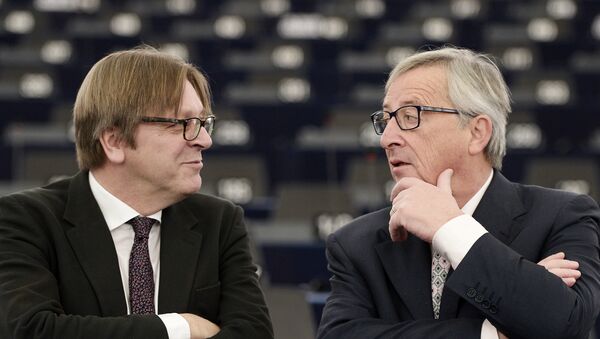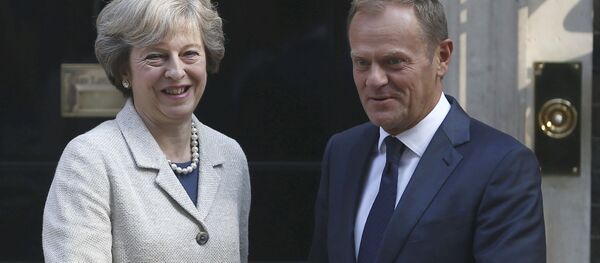Juncker heads the Commission and — as such — will have to implement the fine detail of the talks. Meanwhile, Donald Tusk is president of the European Council, which is nominally the highest tier of the EU. The President of the Parliament, Martin Schulz, will also be in the mix, as will Robert Fico, the Prime Minister of Slovakia, which holds the rotating presidency.
Honour to be appointed as lead #Brexit negotiator for @Europarl_EN, which will play central role Art 50 deal + any future EU-UK agreements.
— Guy Verhofstadt (@GuyVerhofstadt) 8 September 2016
But it is Verhofstadt's appointment that is perhaps the most guiling. He is a federalist, but not anti-British and he has called for reforms to the EU in the wake of Brexit, on top of the migrant and Eurozone crises.
However, he is against the UK remaining in the single market for less money that it is paying now with a seven to ten-year emergency break on EU-migration, which UK Prime Minister Theresa May has proposed.
'Europe a la Carte'
"A deal with these conditions would be unthinkable. It would allow the UK to expand its already very favorable position: keeping the best parts and ridding itself of the obligations that come with it. EU Governments would be mad to agree to such a deal and I can tell you: the European Parliament will never agree to a deal that 'de facto' ends the free movement of people for a decade, while giving away an extra rebate in exchange for all the advantages of the internal market," he said.
Just love this new sign at Geneva airport #Brexit @SuzanneEvans1 @EliotSmith @DanielJHannan pic.twitter.com/KY0n3sbD6m
— Anna Firth (@anna_firth) 10 September 2016
"What would stop other countries from asking the same exceptional status? Do we really want euroskeptics elsewhere in Europe to invoke the British example of 'having their cake and eating it'? Everyone can see that this position is irresponsible because it's not sustainable in the long run.
"The only new relationship between Britain and the European Union can be one in which the UK has an associated status with [fewer] obligations but equally less rights. And if this is not feasible, the fallback position will be an ordinary trade agreement between Britain and the EU."
Whether Verhofstadt can negotiate such a deal for Britain in a reformed EU, while Juncker is calling for a clean break for Britain and Tusk, Fico and Schulz all have their own agendas, remains to be seen. Yet his may prove the most pragmatic answer against a backdrop of disagreements over an immigration policy and fiscal rules within the Eurozone.




